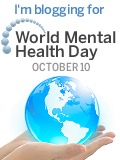We know that mental health is essential to overall health and well-being (WHO, 2001). However, as you read this, about 1 in 5 youth in the United States currently experience a mental, emotional or behavioral disorder. About half of all children have experienced a mental health problem (Institute of Medicine (IOM), 2009). These rates are similar worldwide: anywhere from 1 in 10 to 1 in 5 youth experiencing some mental health problem (Kieling et al, 2011).
In the US, mental disorders in children cost approximately $200 billion annually (National Research Council and Institute of Medicine, 2009; Eisenberg & Neighbors, 2007). And then there are the non-financial costs to these youth, their families and their communities.
The early years of life set the stage for life-long mental health.
Half of all lifetime cases of mental, emotional and behavioral disorders begin by age 14 and three-quarters by age 24 (Kessler, 2005; IOM, 2009). Intervening early at the individual, family and community level can delay or prevent the on-set of mental, emotional, and behavioral disorders (IOM 2009). Also, early diagnosis, followed by appropriate treatment, care and management can improve the health and well-being of individuals with mental disorders.
What are the most common mental disorders among children?
The most common mental disorders among children are anxiety disorders, depressive disorders and behavioral disorders, including attention-deficit/hyperactivity disorder. A recent Centers for Disease Control and Prevention study showed that ADHD affects 1 in 10 youth and that rates are increasing.
 Children’s mental health is a significant public health issue.
Children’s mental health is a significant public health issue.
Given the prevalence, growing burden and potential for prevention, children’s mental health is a focus area for CDC and its federal, non-profit and private partners.
Here are some web resources for families, caregivers and health professionals:
Attention-deficit/hyperactivity disorder



Public Comments
Comments listed below are posted by individuals not associated with CDC, unless otherwise stated. These comments do not represent the official views of CDC, and CDC does not guarantee that any information posted by individuals on this blog is correct, and disclaims any liability for any loss or damage resulting from reliance on any such information. Read more about our comment policy ».
October 11, 2012 at 12:35 pm ET - Katherine Stone (@postpartumprog)
I would hope that maternal mental health would also be a focus for the CDC given how much untreated postpartum depression can contribute to the mental health problems of children.
Link to this comment
October 12, 2012 at 10:01 am ET - Dan
I Am Trying To Contact A Person That Would write and publish my life and recently diagnoised my own adhd and many others im a 52 year old male that has information that could be very beafial to the entire world. Hopefully someone will contact me so i can break out my discoveries with my own adhd.
Link to this comment
AUTHOR COMMENT October 12, 2012 at 2:10 pm ET - Blog Administrator
Katherine, Thank you for your very insightful comment. Yes, our goal is to look at risk and protective factors, such as maternal mental health, that may affect children’s mental health.
Link to this comment